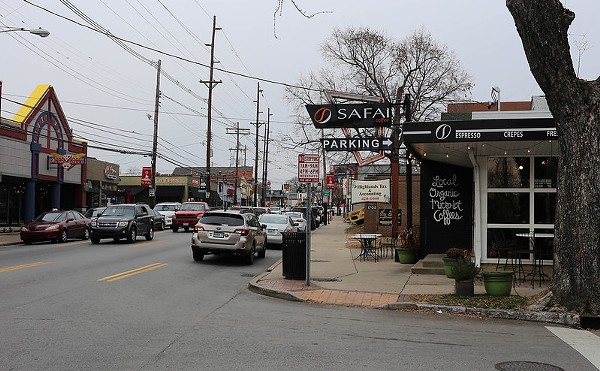After criticizing Republican Hal Heiner for putting the Jefferson County Public School student assignment plan at the center of mayor’s race, Democrat Greg Fischer followed his lead.
A few weeks ago, Heiner argued it was time to end the “failed student assignment plan,” and Fischer immediately pounced on the East End Republican for politicizing school children. But after Fischer’s own campaign poll showed Heiner gaining traction on the issue, Fischer came out with his own 30-second commercial saying he’s “frustrated” and that it’s time to fix the busing plan.
Asked if the ad was based solely on polling, Fischer campaign spokesman Chris Poynter said their commercial is different, because it unites the community.
“Greg has always said, since the beginning of the campaign and shortly after those kids got home very late when the school year started, the plan needs to be improved,” Poynter says.
Considering the mayor has no authority over public school policy, JCPS officials say that both candidates need to do their homework.
“What’s disappointing is the insertion of the student assignment plan and the code words for neighborhood schools (in the mayor’s race),” says JCPS Superintendent Sheldon Berman. “I think they both need to be better informed; if you’re going to criticize something, you need to be. I have to say, Greg Fischer asked for a briefing at least. Hal Heiner has not asked to sit down with me.”
Berman has written an editorial to different publications to clarify and defend the controversial busing plan, which tries to keep public schools diverse by taking the socioeconomic characteristics of a student’s neighborhood into account when deciding enrollment.
•••
The Louisville and Southern Indiana Bridges Authority didn’t allow public comment at its first evening meeting last week, fueling further criticism when it disclosed that a specific financing plan for the $4.1 billion Ohio River Bridges Project would not be ready by the end of the year.
Steve Schultz, executive director of the bi-state authority, says that a financial plan “will have assumptions in there.”
“We think it is a travesty that they are not engaging the community in the process of which tolling scenario to use,” says Curt Morrison, a spokesman for Say NO to Bridge Tolls. “But this announcement gives the community more time to figure out what they’re up to and that they are, in fact, asking for permission to toll our existing infrastructure.”
Say NO to Bridge Tolls has successfully petitioned for resolutions against tolls that were passed by the Louisville Metro Council, City Council of New Albany and Clark County Council. Tolling opponents have collected 5,000 signatures from people who are opposed to tolls on all existing bridges and Spaghetti Junction.
•••
After losing a legal battle with the city, strip clubs will officially become bikini bars thanks to a ruling by the state’s highest court.
Last month, the Kentucky Supreme Court upheld all provisions in the adult entertainment ordinance enacted by the Metro Council six years ago to fight evil g-strings.
In less than a month, Metro government officials will begin enforcing the law, which prohibits alcohol, full nudity, lap dances and customers from directly tipping the dancers. The bill also requires club owners and strippers to obtain proper licensing and creates a six-foot buffer zone between patrons and dancers.
“It’s ridiculous,” says Milford Renfrow, who owns Foxy Lady Gentlemen’s Club, a plaintiff in the lawsuit. “Every adult I’ve talked to is in disbelief that they are legislating us out of business.”
In 2004, council members Hal Heiner, R-19; Madonna Flood, D-24; Bob Henderson, D-14; and then-councilwoman Julie Raque Adams, R-18, co-sponsored the legislation, raising concerns over the perceived ills of adult entertainment businesses. In a recent interview, Flood reaffirmed that argument, citing declining property values, prostitution and drugs as her reasons for supporting the law.
Club owners argue the bill unfairly targets their businesses and have discussed an appeal in federal court, Renfrow says, but without an injunction, it’s unlikely. Now that the longstanding legal fight has ended, they believe it’s only a matter of time before their doors close.
“There are probably up to 2,000 jobs that are going to be lost in this town alone,” he says. “And there is no doubt about this: It will put us out of business for sure.”





